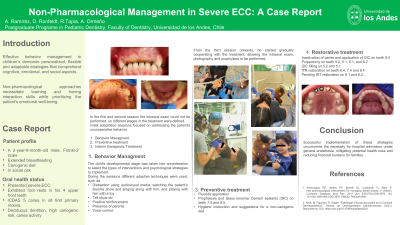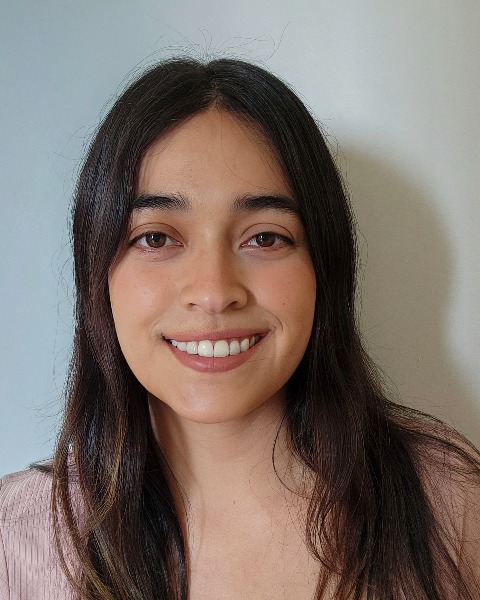Patient Management
383 - Non-Pharmacological Management in Severe ECC: A Case Report


Andrea B. Ramirez Lemus, DDS
Pediatric Dental Resident
Universidad de los Andes
Universidad de los Andes
Quilpué, Valparaiso, Chile- DR
Daniela Ronfeldt, DMS
Universidad de los Andes
- RT
Rebeca Tapia, -
Universidad de los Andes
- AO
Andrea Ormeño, -
Universidad de Los Andes
Santiago, Region Metropolitana, Chile - RC
Roxana Cabezas, -
Program Director
Universidad de Los Andes
Santiago, Region Metropolitana, Chile
Presenting Author(s)
Co-Author(s)
Research Mentor(s)
Program Director(s)
Introduction: Effective behavior management in children’s demands personalized, flexible and adaptable strategies that comprehend cognitive, emotional, and social aspects. Non-pharmacological approaches necessitate learning and honing interaction skills while prioritizing the patient's emotional well-being.
Case Report: A 2-year-8-month-old male, Frankl-2, sought evaluation at the Universidad de los Andes Pediatric Dentistry department. He exhibited root rests in his 4 upper front teeth and icdas 5 caries in all first primary molars. Initial adaptation sessions addressed his uncooperative behavior, followed by pulpectomy on the upper incisors, conducted with the child on his mother's lap.
This approach eliminated the need for general anesthesia, a crucial factor given the family's financial constraints that made it challenging to afford general anesthesia. This underscores the significance of effective non-pharmacological management, reducing patient anxiety and fostering improved relationships with their families.
Successful implementation of these strategies circumvents the necessity for hospital admission under general anesthesia, mitigating potential health risks and reducing financial burdens for families.
Identify Supporting Agency and Grant Number:

.jpg)